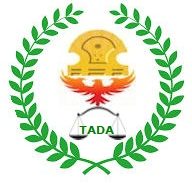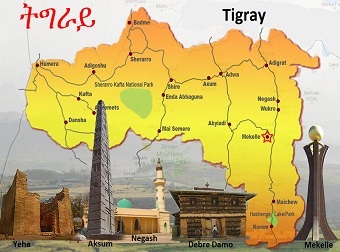17-18 February 2022
The summit presents a unique opportunity to lay the foundations for a renewed and deeper AU-EU partnership with the highest political involvement and based on trust and a clear understanding of mutual interests. Leaders are expected to discuss how both continents can build greater prosperity. The aim is to launch an ambitious Africa-Europe Investment Package, taking into account global challenges such as climate change and the current health crisis. They should also be focusing on solutions to promote stability and security through a renewed peace and security architecture.
In the past, some results have been achieved through the EU-Africa partnership on peace and security, notably captured in the EU-AU Memorandum of Understanding on Peace. In the last five years no meaningful solution has been found on armed conflicts and civil wars in in Africa in general, and Horn of Africa in particular. The complexity of the efforts and the deteriorating situation in Ethiopia requires urgent action. This means working with historic international partners, notably the United Nations Security Council, EU and the United States of America. The AU-led “Silencing the Guns” initiative should be supported & implemented urgently.
Long-lasting peace and security in Africa is as much in Africa’s interest as it is in the EU’s and the wider world. Peace and security are key conditions for sustainable development in Africa. On this EU-AU summit, clear and unequivocal declaration should be made by the EU & AU,mainly in priority regions where political tensions & armed conflict are the highest. African states, supported by regional and continental organisations bear the main responsibility to act, as they are the foremost guarantors of their own security, hence should take legal responsibility and accountability seriously.
Instability in Africa is no longer defined by inter-state conflict but deliberately initiated by repressive dictatorial African governments, hardened & repressive political cliques, bysome tin pot tyrants and delusional & inexperienced populist political leaders. Other factors may include restricted state control over territories and maritime domains, social cohesion, home-grown chauvinism/ extremism & hate speech, intercommunity conflicts, proliferation of vigilante armed groups (Such as Fano Militia & Boko Haram), terrorism and transnational crime (Such as Al-Shebab). Climate change, increased competition for natural resources, unconstitutional regional territorial claims, land grabbing, lack of basic social services & unemployment, pandemics, and other health threats are additional sources of instability.
We call upon the EU-AU to focus and take robust action in the following points:
1. Despite progress on the AU Peace Funding by the EU, the financing of African-led peace support initiatives, including through UN-assessed contributions, remains to be abused/ misused by the AU. The EU and Africa need to adapt their way of working together in fragile areas in order to have an impact on governance at the local level and EU Security financing should be audited and monitored by competent joint body. The EU’s current integrated approach mobilises the full range of its instruments including top political diplomacy, regular consultations, mediation for conflict prevention and resolution, restrictive measures. However, the ongoing war in Ethiopia is beyond the capacity of Africans or the EU. Therefore, this particular civil war can only be addressed through UN mandated mechanisms mainlyUNSCandRTP resolutions. We demand the implementation of Responsibility to Protect (R2P or RtoP)- a global political commitment which was endorsed by all member states of the United Nations at the World Summit in order to address its four key concerns to prevent genocide, war crimes, ethnic cleansing and crimes against humanity.
2. While we recognise the ‘African Peace Facility’ the EU supports African-led peace operations and the African Peace and Security Architecture (APSA), the African Union Peace and Security initiative in the Horn of Africa, particularly Ethiopia failed to bring peace due to departmental maladministration and political corruption.The EU should be aware of this manipulation and take urgent actions and refer the matter to the UNSC.
3. The EU proposes to support African capacity in defence and security, using the proposed European Peace Facility, its CSDP missions and security and defence-related tools to better address the challenges faced by African security and defence actors which the EU has committed EUR 3.5 billion since 2004. In the last five years, this funding has never been independently audited. The EU should request an independent Audit report & and Review the funding arrangements.
4. The EU proposes to strengthen its ongoing efforts in ensuring compliance with human rights, protection of civilians and international humanitarian law. Actions should be carried out in close cooperation with EU Member States, the African Union, African regional organisations, the UN and other key partners – including through trilateral AU-EU-UN cooperation. Special attention should be paid to the implementation of the Youth, Women, Peace and Security Agenda. In this regard, the ethnic cleansing, genocide and gender based violence, particularly rape of women and girls in in the Ethiopian armed conflict should be investigated by the independent UN body. The AU-EU should fully support & cooperate with the UN investigators.
5. Recognising that all human rights are universal, indivisible and interdependent and interrelated, the EU, and African countries should be committed to promoting and protecting all human rights and fundamental freedoms in Africa. Using food as a weapon of war should be immediately stopped, the illegal siege declaredby the Ethiopian Government upon Tigray Region shouldbe lifted urgently. A thorough investigation is needed to evaluate the level of death & destruction due to thisirresponsible government actions, the EU –AU Summit should call for persecution of perpetuators. Thesafeguard and protection of Women, girls and children’srights merits particular attention (Rape used as a weapon of War in Tigray).
6. A more strategic and structured approach to human rights political dialogues with African countries should be adopted, in complementarity with regular consultations with African organisations and the well-established AU-EU Human Rights Dialogue institutions. LinkingHuman rights, development, and peace and security interventions at all stages of conflicts and crises should be an urgent requirement. So far, the constructive steps taken by the EU should be backed by robust measures against perpetuators of genocide, ethnic cleansing and war criminals in The Horn of Africa.
7. The joint AU-EU-UN Trilateral Task Force on Migration, or the commitment to develop a joint framework on continent-to-continent migration and mobility dialogue should be monitored carefully. Despotic regimes that instigate mass migration of Africans should be apprehended and brought to justice. In the past, soft power and appeasement has been used to stop dictatorial regimes from pushing their own citizens to unnecessary suffering. This didn’t work. Now, thetime has come to call the spade –spade. The Eritrean one party government should be held accountable for the thousands of Eritrean youth deaths and illegal migration. The EU must have a clear and unequivocal stance on this issue. The summit should demand the withdrawal of Eritrean troops from Tigray Region immediately and stop the war.
End

